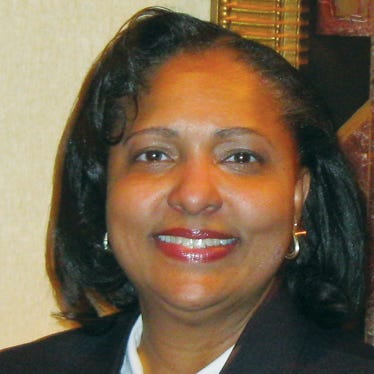Industry leadership spotlight: A conversation with Organic Trade Association's Stephanie Jerger
Heather Fairman of DF Guardian Consulting Inc. has a conversation about leadership with Stephanie Jerger of the Organic Trade Association.

Stephanie Jerger is a name you’ll remember.
She is the VP of operations for the Organic Trade Association (OTA), a member-based trade association that advocates for organic agriculture and products in North America and internationally. OTA represents more than 10,000 organic businesses across 50 states, ranging from growers to retailers. In her current role since 2014, Jerger participates in advocacy, representation and legislation for the organic industry with members of Congress and their staff, USDA’s National Organic Program (NOP), National Organic Standards Board (NOSB), and stakeholders on food and farming policy.
Jerger is filled with passion and vision for her industry and community, a relentless advocate and servant leader. In the following interview, she shared some of the unseen and unheard areas of the organic industry. Jerger is driven by one of her personal mantras — there are doors that she is committed to keeping open — and describes how those around her positively impacted her early life and leadership style.
Heather Fairman: What is your definition of leadership? And who was most influential in helping you identify yourself as a leader?
Stephanie Jerger: “Leadership is about following someone who is thoughtful of our journey together and transparent about possibilities on the journey and where we will land. This is how I lead.”
Jerger’s view of leadership is about being drawn to follow someone who is willing to go on a journey, a path and an experience with you. She will follow someone who is thoughtful of the shared journey, transparent about possibilities of the journey and reasonable in where they land together. These are the indicative components of leadership to her and emulate her leadership style.
Jerger also shared how her upbringing impacted her life. She describes herself as an “extreme introvert” who spent a lot of time alone as her mother worked two full-time jobs all her life. This experience as a “latchkey kid” influenced the development of her personality. Jerger came from very humble beginnings and was influenced greatly by the people around her who she describes as “silhouette structures.”
One of the first and most influential people Jerger vividly recalls was her elementary school principal, Dr. Zaheerah Shakir. Jerger described her as a “Black woman Ph.D., Muslim, who was an ex-Panther,” and the most amazing person Jerger had ever seen, heard or spoken with at the time. She remained Jerger’s principal throughout elementary school and really shaped Jerger as a leader. Shakir spoke and led with power. In this, Jerger was able to envision herself as a leader by experiencing Shakir’s leadership presence. It helped her develop her own internal power in the absence of external validation. Shakir was her silhouette hero.
She relates this to her own leadership style and impact on the organic industry. Jerger is a doer, a person who takes action and leads people on a journey. Since her entrance into the organic industry in 2014, she’s leveraged her leadership roles to open doors for others and mentor them, and they have gone on to be excellent leaders in the industry.
“Leadership in this era for this industry has changed,” she said. “There are more people that look like me. Leadership has to be more bold and there is a time for it.”
Jerger believes the industry is ready for leadership that “looks like her” and explains that the stagnancy of leadership since the 1990s needs to change and evolve. Leadership needs a “new voice,” and she feels opportunities for leaders like her are going to grow in the organic industry.
Fairman: What was the most important lesson you learned very early in your career as you grew in leadership?
Jerger: “No one remembered my name, but one day they will.”
Jerger shared a lesson about one specific scenario that happened repeatedly. She was one of the only Black people in the OTA for many years, and yet no one remembered her name. At trade shows, conventions and conferences, no one remembered her name, but she said to herself that one day, they would. Undaunted, Jerger decided she would show people how she remembered not only their names, but what they did, who they were, what they said, what their issue was and how she could help solve it. This determination made her the “go-to” person in the industry. People said, “If you want to get something done, go to Stephanie.” They remembered her name. Jerger knew she could change the situation, and her actions elevated her role in the industry.
Jerger experienced similar situations when she first started doing lobbying work on Capitol Hill. She also worked for the government affairs team, helping them by attending meetings, as she loves political science. But even on Capitol Hill, when people saw her name in an email or heard about her, she saw some surprised reactions when they met her. Now the senators and Capitol Hill officers know her name and ask for her, needing solutions and recognizing her ability to provide them. She is currently the registered lobbyist on Capitol Hill for OTA and the treasurer of the political action committee.
Jerger’s work stood out, and her integrity and credibility preceded her. She built on that dependability and reliability, and showed up to serve the industry and other leaders with a confidence that inspired others and continues to do so today. Jerger was the first Black person in the OTA since 1985, and she has strived to change the landscape of diversity with the organization’s full support and backing. Not only is her name now known, but she is recognized as a dynamic leader.
Fairman: What would you say is the single most important impact you could make as a leader in the industry?
Jerger: “I am a change agent. I’m passionate about making the industry look like me — its consumers, farmers, producers. This change will be transformative for the industry, not just the organization. OTA is committed to leading in diversity within the industry. If I can lead this change, it will change everything else, and everybody will decide to follow.”
The most important thing Jerger believes she can do as a leader is “take the doors down, remove the hinges, take the gates down.” She expressed that everything she does is not for a point in time, a single project or even a program. She is purposely building meaningful and authentic relationships that will change the industry.
She has pioneered memorandums of understanding and agreements (MOUs) that the industry has never entered into, in particular with the Black Farmers Index, which most people in the industry didn’t know existed. The Black Farmers Index contains information on approximately 1,200 Black farmers who are farming organically but are not certified organic by USDA. “How did no one know about them?” Jerger asked. She is working to connect all of these farmers with organic certifiers at USDA.
Jerger has also reached out to Black venture capitalists who are interested in investing in organic consumer packaged goods (CPG) brands. They had never talked to anyone in this industry because those connections were never a priority for the trade associations and the industry. Through her work, people in the industry can see what was not viable or possible before. She’s also working on an impactful initiative to get organic foods into schools and to low-income families.
Fairman: With a focus on the future of the organic trade industry you serve, how important is it that the upcoming generations are mentored and trained to lead? How can Black farmers in the organic industry help to influence generational succession?
Jerger: “On building relationships … show up differently!”
Jerger believes Black farmers will lead in the industry in the future. She shared the history of indigenous and Black farmers and that much was taken from them. They had been practicing organic farming for many years.
“The word ‘organic’ is co-opted and has been taken away from indigenous and Black farmers,” Jerger said. “What they do is organic. Everything they have done is indigenous and native to their practice. How they farm is good for the soil and is within all the practices of the regulatory guidelines.” She believes the enforcement applied to Black farmers was a capitalization move designed to take organic recognition away from these groups.
Jerger plans to “put organic back in the hands of the Black, Latino and indigenous farmers” who are accustomed to feeding organic to their communities. She is also pushing for the integration of these organic farmers’ foods into the industry and mainline markets like WIC (Special Supplemental Nutrition Program for Women, Infants and Children), schools and colleges. Her intent is also to empower the next generation of indigenous, Latino and Black organic farmers by creating opportunities for training and mentoring through programs at OTA, Black Farmers Index, National Latino Farmers and National Young Farmers Coalition. The goal is to help them gain organic certification and give back to the farmers more than was taken from them, so they in turn will give back to their communities and generations to come. This will also help them get government contracts and bring their organic foods into schools and other important communities. Empowering these farmers with knowledge and understanding of the organic industry and its benefits to them will empower them to impact and transform their communities.
Fairman: What are three fundamental values that you will impart to the next generation of industry leaders?
Jerger: “Humility, compassion and self-belief.”
Regarding humility, Jerger never wants to feel like she knows everything. There are things she does not know. Her default is to always say, “I don’t know,” yet she’s often affirmed by those around her that she does.
Jerger is compassionate in her views about other people’s lives. She never leads with the “assumption of malice” because one never knows what people are walking around with, so she always extends compassion.
And finally, Jerger knows that self-belief is not in opposition to humility. She believes she can do anything — because she can always learn what she doesn’t know.
These are the values that Jerger says she imparts to her staff in training and developing them. She lives these values and practices them daily in her leadership as she leads people on a shared journey where they land in a reasonable place. A place where possibility exists in the presence of humble expectations.
About the Author
You May Also Like

